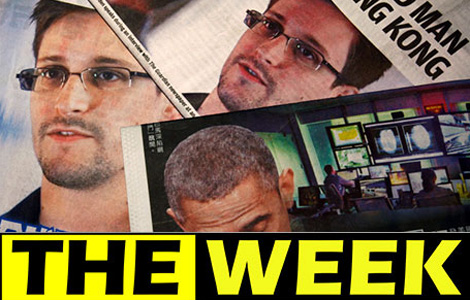Cents and sensibilities
Updated: 2013-06-23 07:50
(China Daily)
|
|||||||||||
What is the best city in the world to dine out in? What is the cost of looking stylish in Paris or renting an apartment in New York? No matter where you are the essentials stay the same, but the cost of living can vary greatly across the globe.
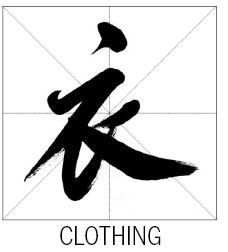
Buying quality always in Vogue
Compiled by Valerie Ng
valerie@chinadaily.com.cn
Aurelie, a public relations officer at a French multinational company in Paris, is not into high-end designer brands. Instead, she prefers French brands such as Maje and Paule Ka that offers a chic, simple and original look at mid-range prices. A Maje dress costs between $197 and $328.
Aurelie says she spends about $130 a month on average to keep up a stylish wardrobe.
Joseph D'Alessio, a mortgage consultant at Hong Kong Shanghai Bank Corporation in New York, also prefers boutiques to international brands because of the tailor-made services.
"I tend to find small clothing stores and designers that offer more individual and specialized service," says D'Alessio, adding that he appreciates quality and is willing to pay $100 for a shirt at a boutique retailer in Manhattan's Flatiron district.
As for casual wear, D'Alessio likes well-cut jeans despite a price tag that will set him back at least $200. He also buys a pair of running sneakers every six months, which costs about $100, for his gym workout.
Although Paris is considered the world's fashion capital, executives living in emerging cities like Beijing and Shanghai are becoming more fashion conscious and willing to spend on quality clothing.
Based on the data, Singapore is the cheapest city to buy a mid-range T-shirt of international brand, such as about $32 for a Lacoste; while Beijing and Shanghai are the most expensive cities with the same brand of T-shirt costing an average of $130 per piece.
Compared to the median salary per city survey conducted by Numbeo.com, an online cost of living research site, that means a mid-range T-shirt takes up only 1.02% of the monthly salary of someone in Singapore, 15.20% (Beijing) and 3.91% (Shanghai).
If you are someone who loves casual jeans, it is cheapest to get it in New York. The price of a pair of Levi's jeans in the financial city costs an average of $52.50, compared to Beijing and Shanghai, which will cost an average of $130.
We also found that priorities and lifestyles change with age or marital status.
For example, 30-year-old Wei Dongjian from Beijing used to splurge on clothes and shoes from his favorite brands namely G-Star, Zara, Timberland and Diesel.
Now, the business development manager in a Beijing interior design firm, who is preparing for his wedding, says he is saving up to buy an apartment, and maybe even a car.
The same goes for 32-year-old Chen Shaojie, who only wants the best for his 2-year-old son. Most of the items for his toddler are imported. His latest buy is a $1,142-yuan baby carrier, directly imported from the United States.
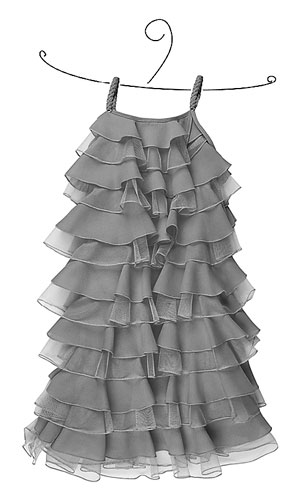
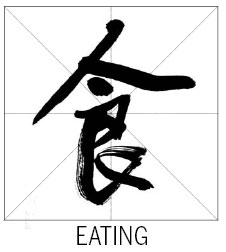
From Big Macs to Michelin star
Compiled by Tiffany Tan
tiffany@chinadaily.com.cn
To many mainland Chinese, Western food is still an adventure, a treat for a big date or a weekend brunch with family. Western fast food is not quite in that category, but a McDonald's Big Mac meal (regular price) in Beijing at 27 yuan ($4.40) is not cheap when you can already get two bowls of noodles or three orders of dumplings for the same price.
Wei Dongjian, business development manager at a Beijing interior design firm, himself spends only 20 yuan a meal even though his 14,000-yuan monthly take-home pay is almost triple the average salary in the Chinese capital.
"I cook at home most days, since it's cheaper that way," says Wei, 30, who is engaged to be married and is saving up to buy an apartment, maybe even a car.
But compared with the other cities we surveyed, Beijing and Shanghai actually have the second least expensive Big Mac meals. The top spot, at the equivalent of $8.58 for the meal, goes to Paris, ranked as the world's eighth most expensive city in an annual survey by the Economist Intelligence Unit. New York City takes second place with the meal at $7.28.
Western fine dining, however, is another matter. It's even pricier in Beijing and Shanghai than in major Western cities. A three-course meal for two - complete with wine - at an American steak house in Beijing would cost about $300, the lower end of what you'd already expect to pay for dinner at a Michelin three-star restaurant in Paris.
The bill is also more than what one Wall Street professional spends for an equivalent meal. Joseph D'Alessio, a mortgage consultant at HSBC in New York City, says that steaks for two, along with appetizers, wine and desserts, at an international chain in the Big Apple usually sets him back $250. That already includes the tip, which has not been factored into the Chinese restaurant bill.
But even though the food selection in New York City is "unparalleled in the world", as D'Alessio says, he'll probably still be hard-pressed to find pork dumplings that cost only a dollar per order.

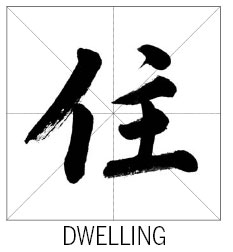
Home is where the money is
Compiled by Deng Zhangyu
dengzhangyu@chinadaily.com.cn
House ownership tops the list of priorities for most people, taking up the biggest share of their budget. Based on the seven cities surveyed, monthly rental takes up one-third to half of the median pay. Singapore takes the lead in terms of apartment rent at $3,394 per month for a 50 to 60-square-meter flat, followed by New York at $3,100.
But, the two cities in Chinese mainland - Beijing and Shanghai - stand out in terms of ratio between property prices and income. Based on the figures provided by Numbeo.com, a cost of living survey website, if Beijing residents save every cent they earn, they will need more than 60 years to pay off their property. In London, that takes half the time.
Although the desire to buy a house is a common wish for people living in any city in the world, that desire is stronger in Asian cities especially in China.
As the Chinese saying goes, "Establish a home and a career", marriage and career come hand-in-hand, and house ownership is seen as a prerequisite for marriage.
To show how expensive it is to own a roof in Beijing and for comparison sake, we take a look at Miller Samuel's Elliman Report. According to the report's first quarter sales of housing in Manhattan, the average sale price for a condominium is over $1.3 million and the average monthly pay is $2,710. The same amount of money can only buy a flat in Beijing, not in downtown, but the average income is only $815.
Apart from the wide gap between property and income, people living in Hong Kong and Beijing have to also face the still soaring market.
"Every time I think I have saved enough for a payment, I find that prices have gone up again or the rules have changed," says interior designer Winky Lee in Hong Kong, with an annual income of $69,230.
"No matter how hard I worked, the speed of my salary rise can't catch up with that of the property prices," says Wei Dongjian in Beijing, who has an above average pay of $27,400 a year.
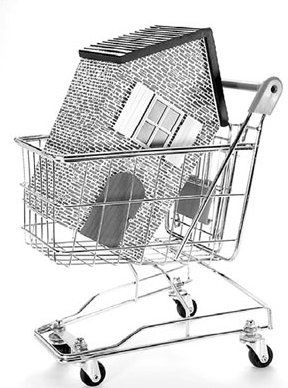

Commuting movin' on up
Compiled by Valerie Ng
Chen Shaojie from Shanghai owns a 400,000-yuan ($65,240) BMW 320Li. But he chooses to take the subway to and fro from work, which takes up two hours of his time every day.
"My wife and I used to have the time for sports such as badminton or jogging before we had our son in 2011. But now, we have to make the best of our time. Daily commute on public transportations is the best exercise," says the 32-year-old.
Shanghai subway fares start from 2 yuan for distance below 6 km, increasing gradually by the distance.
Among the people China Daily interviewed, subway is their transportation of choice. They cite convenience, low cost, reliability and no traffic jam anxieties as the reasons.
And among the cities survey, Beijing has the cheapest public transportation.
The capital city also boasts one of the cheapest public transport fares in China. Subway costs only 2 yuan per ride, regardless of distance, while bus rides cost only 1 yuan cash or 0.40 yuan with the transport card.
With four new subway lines that began operation on Dec 30, 2012, Beijing now has the longest subway network in the country and one of the longest in the world, with a total track length of 442 km.
New York's more than 100-year-old subway system has always been the great equalizer among people of different socio-economic status.
Even today, billionaire mayor Michael Bloomberg rides the subway a few times a week to City Hall. It costs $2.50 per ride.
The financial capital is also a robustly well-connected city.
"I really appreciate the NYC transportation system. Even when things are not running properly or are delayed, there are so many options," says Joseph D'Alessio, a Premier Mortgage Consultant at Hong Kong and Shanghai Bank Corporation.
Although it is inexpensive to travel using public bus and subway, there is one common complaint overcrowded, as more people migrate from rural areas to these cities for better job opportunities.
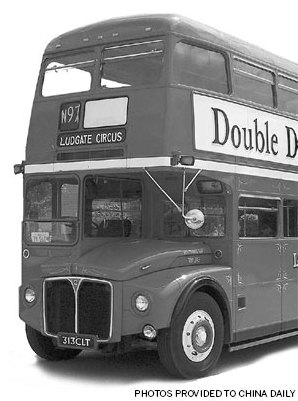
(China Daily 06/23/2013 page4)
Today's Top News
US 'stole' China's statistics
Mountaineers killed in Pakistan
Foreign firms eye new 'opening-up'
Suspect in shooting spree detained
Stock market to lift ban on shares worth $5b
Central bank reiterates prudent monetary policy
Profiting out of Africa comes with risks
Project halted due to bird nests
Hot Topics
Lunar probe , China growth forecasts, Emission rules get tougher, China seen through 'colored lens', International board,
Editor's Picks

|

|

|

|

|

|
